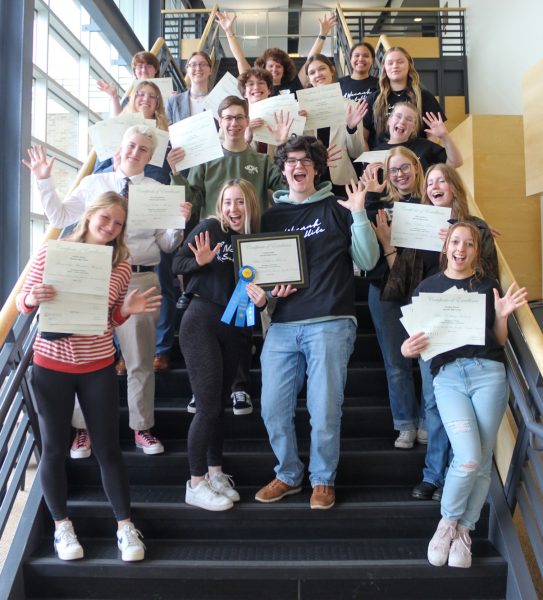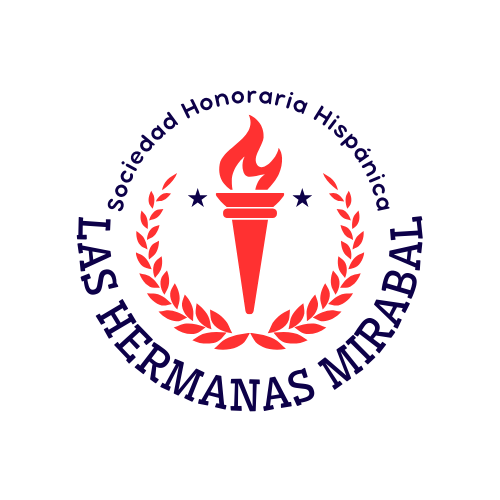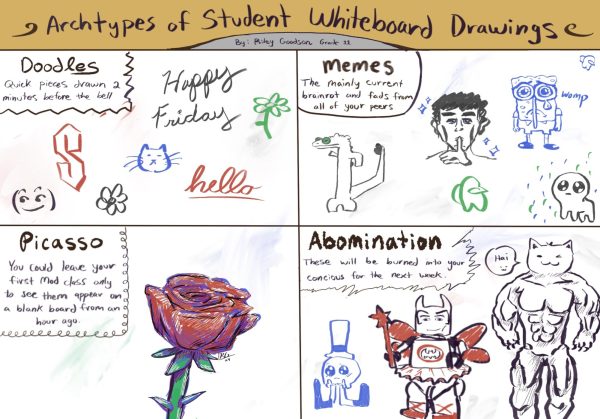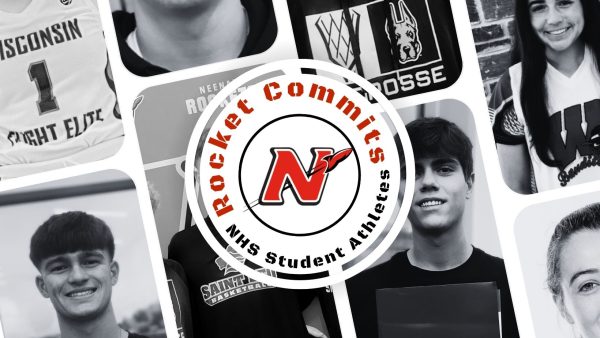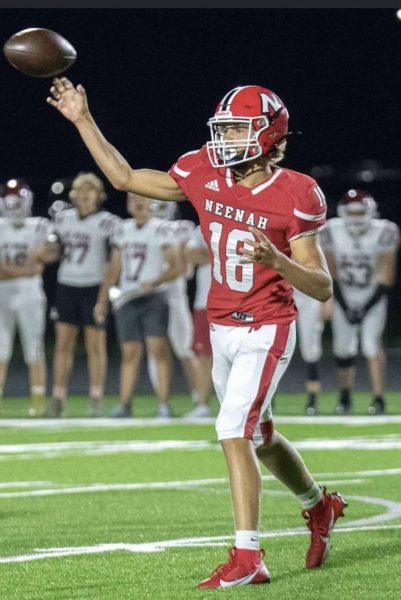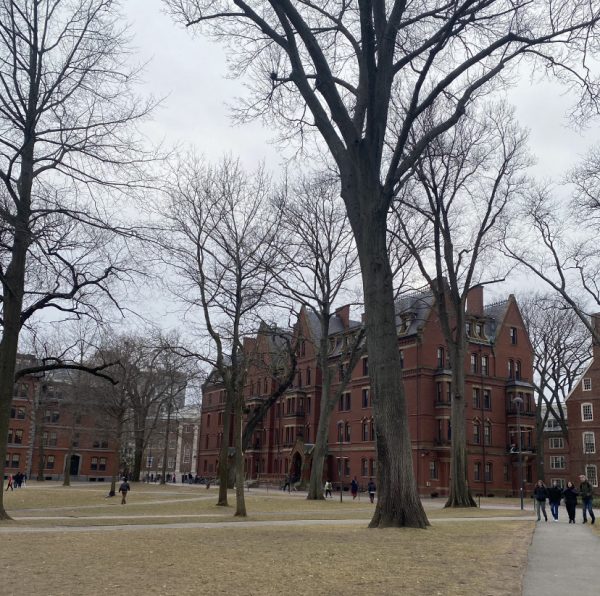Column: The Use of Native American Team Names in Sports
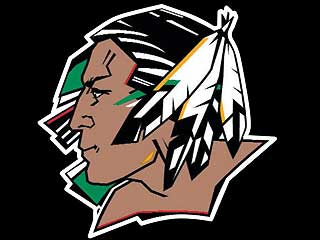
“After 81 years, the team name… continues to hold the memories and meaning of where we came from, who we are, and who we want to be in the years to come,” says Dan Snyder, Washington Redskins team owner about the preserving mascot name. As this controversy grows, two opposing sides are becoming more divided and opinions are hardening. A current frenzy exists in collegiate and professional athletics over team names whose mascots are Native American. Take the Washington Redskins and the University of North Dakota Fighting Sioux for example. Both teams have American Indian mascots and both teams are undergoing criticism because of it. The use of Native American team names does not directly mean that it is being discriminative, even though some people think the use of Native American team names is disrespectful and used without consent, Native American team names should be allowed to be used in athletics because many tribes approve the use of their name as a mascot and many advocate for the presence of that name.
Throughout the controversies, an opinion exists that the use of Native American team names is disrespectful and used without consent. John Two-Hawks, an Oglala Lakota activist says, “Some of the names and antics seen at games are nothing less than racist.” This is a common opinion among opposers to the use of Native American mascots. But, this could not be further from the truth. Teams that have these names and mascots use them in a way of respect and pride. For example, the University of North Dakota previously had the mascot name of the Fighting Sioux before it was changed because of its to its continuing controversy. Bubba Standing Bear, a member of the Standing Rock tribe said, “I did not think it was disrespectful… I think it is respectful,” when being asked about the name in an article done by James Macpherson and Dave Kolpack in The Huffington Post. Before each game at UND, whether that be basketball, hockey, or any other sport, a three minute tribute is offered to the Sioux tribes, which showcased their bravery and pride. Fans and tribal members alike loved this respectful tribute. It only heightened the pride and feeling that the name Fighting Sioux brought. The mascot image itself was fierce and powerful. It actually meant something and people could feel that emotion. Also, it portrayed beauty and respect at a whole new level. This is the reason why current American Indian tribes may accept and even applaud their names being used.
Native American team names should be allowed in athletics because many tribes approve and advocate the use of their name as a mascot. In 2005, the NCAA placed all schools whose mascots were American Indian names on a list that deemed them — hostile and abusive. If the schools did not remove or change their name, they were to face repercussions by the NCAA. Fortunately, some schools kept their nicknames: the Florida State Seminoles, Central Michigan Chippewas, and Utah Utes. This was possible because they received approval from the tribes themselves, as written about by Steve Wulf, a journalist for ESPN. These tribes clearly approve the name because it portrays the fighting spirit and pride from the past that can now live on in the present. In the case of the University of North Dakota, one of the two tribes of the area, Spirit Lake, voted to keep the name; even though the other tribe, Standing Rock, never voted. According to Walter Twinn, who still speaks native Dakota language, only a handful of people on the reservation oppose the name. Most tribal members want to see it in use. He later cites a Pipe Ceremony from 1969, which took place on the UND campus, where delegation from Standing Rock and at least one representative from Spirit Lake bestowed the University of North Dakota permanent rights to use the Fighting Sioux nickname. This represents both tribes who have a say in the name agreeing that it belongs to the University of North Dakota. Because of this, the NCAA should not remove it. Bubba Standing Bear said he would have voted to keep the name had he been old enough to vote. These examples show that many members did not vote, but if they had they would have supported the name.
Another reason Native American team names should be allowed to be used in athletics is because the use of the name does not mean that it is discriminating. It would be unfair for one to say that each and every name is discriminating simply because it is being used. In many cases, colleges and sports teams have Native American mascots because that area of the country housed these different tribes. Team owners of the Washington Redskins believe that the Redskins name honors “where we came from, who we are” according to an article by Michael Martinez from CNN. As the name is a tribute to the past, it is clear that fans relish in the name and create their own sense of pride. In modern day America, this country has overcome the violence of the past in regard to Native American removal. The country has recognized its past leaders and realized the wrong of what once was. History books now teach the bravery of the American Indian tribes and show that settlers who exiled them were morally wrong. The use of Native American names is a sign of respect and honors the tribes that were oppressed.
For these reasons, it is clear that although some people think the use of Native American team names is disrespectful and used without consent, these team names should be allowed to be used in athletics for three main reasons. First, the use of American Indian mascots is not disrespectful because tribal members accept it and schools go the extra mile with showcasing the legacy and history of the tribes. Second, many tribes approve and advocate the presence of the name because they find that it carries on their legacy. Lastly, the use of a Native American team name does not directly correlate with it being discriminating. In fact, many names honor Native American traditions. Using these historic names epitomizes the tradition that different tribes brought to this country.



